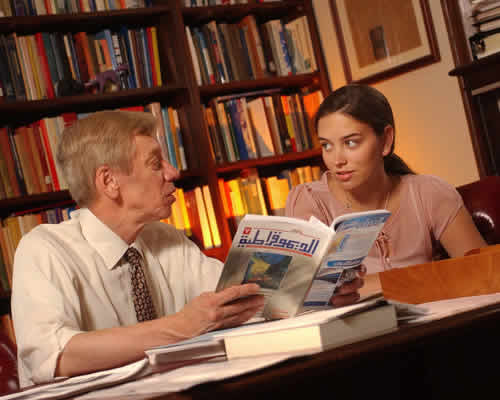Most Americans take for granted the separation of powers and responsibilities in their federal, state, and local governments. But not John Kincaid, Robert and Helen Meyner Professor of Government and Public Service, who has a deep interest in the relationship of federalism to building democracies and world peace.
“Federalism is the most viable form of government for large and diverse societies,” says Kincaid, who is also the director of the Meyner Center for the Study of State and Local Government. “It can protect the rights of the minorities in a society. In a democracy, the majority wins. Federalism limits majority tyranny by granting local or regional control over some issues. So a region can have some autonomy and still be part of a larger country. Federalism accommodates diversity. Communities and regions, such as states, are free to structure taxes as they wish to support projects they feel are important.”
In addition to the United States, he cites Canada, Australia, and India as examples of countries that give autonomy or local control to certain regions. He says Iraq, with the Kurds, Shiites, and Sunnis, might do better with a federal system of government granting some autonomy to local regions than a centralized democracy in which minority groups are continually outvoted and their rights not protected.
Kincaid has received six Fulbright grants to bring together leaders and professors from around the world to summer institutes on campus to debate and discuss federalism, republicanism, democracy, constitutions, and other governmental issues. Most of the participants are from Third World countries struggling with these issues.
“The participants take something back to their country and contribute to their academic institution and their society as a whole,” says Kincaid. Among those attending past institutes were groups from Cyprus and Indonesia. “I hope in the long run that we can play some role in building reconciliation and ending hostilities.”
Kincaid’s interest in federalism is rooted in his experience in the 1960s with the civil rights and anti-war movements, and community organizing. He came to Lafayette in 1994 as the first director of the Meyner Center from the U.S. Advisory Commission on Intergovernmental Relations, a bipartisan, independent commission charged with facilitating cooperation among federal, state, and local governments.
“Dr. Kincaid’s mentorship in my research endeavors was invaluable in my professional and educational pursuits,” says Josh Handelsman ’96, a government & law and psychology graduate who worked on a survey of city mayors with Kincaid. Handelsman completed his MBA in aviation this spring at Embry-Riddle Aeronautical University, Daytona Beach, Fla., and has both private and commercial pilot licenses.
“My work with the Meyner Center coupled coursework with real-world subject matter; a great complement of academics and actual experience which exemplifies the Lafayette Experience. I am very fortunate to have worked with Dr. Kincaid and appreciate the resources that he made available to me. They have truly helped me in my post-college life.”

A National Leader in Undergraduate Research. Christiane Conn ’03 made a presentation on her collaborative research with John Kincaid, Meyner Professor of Government and Public Service, at the National Conference on Undergraduate Research.
